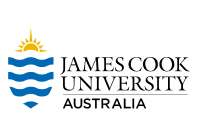Are you considering pursuing an MBA in Australia but feeling overwhelmed by the number of specialisations available? Choosing the right specialisation can be daunting, with options ranging from marketing to finance to entrepreneurship. However, a critical decision can significantly impact your future career prospects. So, how do you choose the perfect MBA specialisation for yourself in Australia?
In short, the right MBA specialisation for you will depend on your career goals and aspirations. You should assess your strengths, interests, and past experiences to determine the field that aligns best with your aspirations. Additionally, you must evaluate the job market to ensure that the specialisation you choose has demand and growth potential.
In this article, we will provide you with a comprehensive guide to selecting the right MBA specialisation in Australia. We will walk you through essential factors to consider, such as job prospects, industry trends, and curriculum, to help you make an informed decision.
So, are you ready to take the first step towards your dream career? Let's dive into the world of MBA specialisations in Australia and find the perfect fit for you!
Quick Links To Master Of Business Administration Online Programs
RMIT
Master of Business Administration Online
- 2.7 years part-time. Reduced duration available
- $4,560 per course, FEE-HELP available
- Jan, Mar, May, July, Aug, Oct
Southern Cross University
Master of Business Administration Online
- 2 years part-time
- Jan, Mar, May, July, Aug, Oct
- $2,990 per unit, FEE-HELP available
UTS Online
Master of Business Administration Online
- 2 years (minimum)*, Part-time
- 12 subjects | 7-week study blocks
- $4,250 per subject**, FEE-HELP available
James Cook University
Master of Business Administration Global (MBA Online)
- $3,700 per subject , FEE-HELP is available
- 24 months, Part-time
- 12 (One subject per each 7-week study period)
Understanding the Different MBA Specialisations
When it comes to selecting a specialisation for your MBA, it is essential to have a solid understanding of the differences between the available options as well as the potential career pathways that each could lead to. The following is a list of several common MBA specialisations, along with an explanation of what they normally entail:
1. Finance
Those interested in finance positions, such as investment banking, corporate finance, or asset management, often choose to pursue a Master of Business Administration in Finance. Financial analysis, risk management, and investing are often some of the topics that are covered throughout the course of the study.
2. Marketing
Those who are interested in positions such as product management, brand management, or advertising would benefit greatly from earning an MBA in marketing. Subjects like customer behaviour, market research, and advertising strategy are frequently included in the course material.
3. Human Resources
Those who are interested in positions such as HR management, talent management, or organisational development can consider pursuing a master's degree in business administration with a specialisation in human resources. Topics, including organisational behaviour, talent acquisition, and HR strategy, are generally included in the course content.
4. Operations Management
Those who are considering careers in supply chain management, logistics, or operations management would benefit greatly from earning an MBA with a specialisation in operations management. Process improvement, supply chain management, and logistics are often among the topics covered in a standard educational program's curriculum.
5. Entrepreneurship
An MBA with a specialisation in entrepreneurship is designed for people who want to run their own companies or operate in an atmosphere that is similar to that of a startup. The course material often covers subjects like business strategy, startup funding, and venture capital, amongst others.
6. International Business
Those who are interested in working in a global business setting can consider earning an MBA with a specialisation in international business. International commerce, global economics, and cross-cultural management are only some of the themes that are often included in the course material.
It is essential to keep in mind that the aforementioned are merely some typical instances of MBA specialisations and that different programmes may have distinctly different curricula and areas of specialisation. In addition, many MBA programmes provide you with the opportunity to tailor your education to your specific interests through the use of electives, which opens up a world of new possibilities.
When selecting a specialisation for your MBA, it is essential to take into consideration your professional interests, aptitudes, and aspirations. Doing research on the different job opportunities and career routes available in the industry of your choice is another useful step towards making an informed selection.
Identify Your Interests and Career Goals
Establishing your interests and ambitions for your career is one of the first and most essential steps in selecting a specialisation for your MBA degree. In order to assist you in this process, here are some questions that you might ask yourself:
1. What Are My Strengths and Weaknesses?
When selecting a specialisation for your MBA, you should give careful consideration to both your strong and weak points. An MBA in finance or operations management, for instance, could be a suitable option for you if you excel in analytical and quantitative skills.
2. What Are My Interests?
Think about the aspects of the business world that most pique your attention. Are you someone who gets excited about the prospect of marketing and advertising? Or would you say that managing people and resources is more interesting? Discovering your passions and interests prior to selecting a focus for your MBA might be helpful in making the right decision.
3. What Are My Career Goals?
Consider your long-term professional aspirations and the jobs you would like to play in the coming years. You can choose an MBA specialisation that will best prepare you for the jobs you want by conducting research on the employment possibilities and career routes available in the field you want to work in.
4. What Are the Industry Trends?
Evaluate the current trends in the industry you wish to work in. Are there any new industries that might have a larger need for certain MBA specialisations in the near future? Keeping up with the latest developments in your business will assist you in making an educated choice on the specialisation you pursue for your MBA.
5. What Are My Personal Values?
Consider the personal values that are important to you as well as the kind of working environment and business culture that you would like to be a part of. An MBA in sustainability or corporate social responsibility, for instance, could be a suitable choice if those are two topics relevant to you, likewise if environmental protection and responsible business practices are essential to you.
When deciding on a specialisation for your MBA, it is vital to give careful consideration to the aforementioned enquiries and to conduct relevant background research. Remember that the specialisation you choose for your MBA can significantly influence the career path and opportunities available to you in the future. Because of this, it is essential to select a specialisation that is congruent with your interests, capabilities, and professional aspirations.
Consider the Job Market
When selecting a specialisation for your MBA, it is essential to take into account the current state of the labour market as well as the demand for certain skill sets. The following are some considerations to take into account:
1. Industry Demand
Do some research on the fields that are experiencing a labour shortage at the moment, and think about selecting an MBA specialisation that corresponds to one of those fields. An MBA specialising in healthcare administration could be a smart choice, for instance, if the healthcare business is expanding quickly.
2. Job Outlook
Do research about the employment prospects of your selected area of specialisation. Is there an anticipated increase in prospects for advancement and high demand for that skill set? You should select a specialisation for your MBA that will result in increased job possibilities and professional development.
3. Location
Think about the city or town in which you would like to start your career when you've finished school. There is a possibility that the demand for various MBA specialisations will vary from region to region. For instance, if you want to work in a big financial hub, getting a master's degree in business administration with a specialisation in finance or accounting would be a smart alternative.
4. Network
Think about the alumni and working professionals you can connect with in the field that you wish to go into. There are MBA programmes out there that have robust alumni networks that can put you in touch with possible employers and prospects for work.
5. Industry Partnerships
Many masters of business administration (MBA) schools have formed connections with particular fields of business or firms, which can create one-of-a-kind chances for internships and job placement following graduation. When selecting a specialisation for your MBA, take into consideration these collaborations.
When you take into account the current state of the job market, you will be able to select an MBA specialisation that will help you advance in your career. It is essential to research the demand for a variety of skill sets, as well as to consider the location of graduates and professionals working in the field of your choice.
Talk to Alumni and Industry Experts
Conversations with MBA programme alums and other professionals in the field might yield helpful information on the various MBA specialisations and career options. The following are some suggestions for establishing connections with industry veterans and former employees:
1. Attend Information Sessions and Networking Events
The prospective students of many MBA programmes are invited to attend information sessions as well as networking events. These events can be a wonderful opportunity to network with other graduates and professionals working in relevant industries and learn more about a variety of specialised fields.
2. Reach Out to Alumni and Industry Professionals on LinkedIn
LinkedIn is an excellent resource for building professional connections and expanding one's professional network within one's chosen field. Make contact with MBA alums and other industry experts who are part of your professional network. Ask these individuals about their experiences with the various MBA specialisations and career pathways.
3. Conduct Informational Interviews
It is a good idea to talk to former students or professionals in your field about their experiences and get their opinions on the various MBA specialisations available. This can be accomplished by setting up informational interviews. Make sure you have a list of questions ready for them ahead of time, and remember to be respectful of their time.
4. Attend Industry Conferences and Events
Attending industry events and conferences can provide opportunities to network with people working in the field of your choice and gain knowledge about the most recent trends and advancements in the business. These events can also be an excellent way to acquire insights into a variety of MBA specialisations and career pathways, both of which are available.
You can obtain useful information about the many MBA specialisations and career options by speaking with graduates of the programme as well as industry professionals. After graduation, these contacts may also provide opportunities for networking with other professionals and possible career leads.
Look at the Curriculum and Course Offerings
When picking a specialisation for your MBA, it is essential to investigate the distinct programmes' curricula and course selections to ascertain whether or not they correspond with the ambitions and pursuits you have for your professional life. The following are some considerations to take into account:
1. Core Courses
Core courses are required for all MBA programmes and address key business topics like finance, marketing, and operations. These courses are required for all MBA programmes. Examine the required classes to ensure that they will help you achieve your academic and professional objectives.
2. Elective Courses
You are able to hone your expertise in a particular aspect of the business by taking elective classes. Look at the available optional classes and consider whether they connect with the things you want to do in your career.
3. Specialised Tracks or Concentrations
Some Master of Business Administration (MBA) programmes provide specialised tracks or focus within a certain field of study. For instance, a Master of Business Administration in Marketing degree might allow for specialisation in Digital Marketing. Examine these specialised routes, and think about whether or not they correspond with the aims and interests you have for your career.
4. Experiential Learning Opportunities
A significant number of MBA schools provide students with options for experiential learning, such as internships, consulting projects, and study abroad programmes. Examine the chances for experiential learning that are presented to you, and think about whether or not they align with the things you're interested in doing professionally.
5. Faculty Expertise
Take a look at the areas of expertise that the MBA program's faculty members have, and think about whether or not their research and teaching correspond with your interests and ambitions for your career. Throughout the course of your MBA programme, faculty members are able to offer insightful guidance and mentorship.
You will be able to select an MBA specialisation that corresponds with your personal interests and professional objectives if you compare and contrast the curriculums and course offerings of various MBA schools. When making your choice, take into consideration the required courses, the elective courses, the speciality tracks or specialisations, the chances for experiential learning, and the expertise of the faculty.
Consider Your Learning Style and Preferences
When selecting a specialisation for your MBA, it is essential to consider your prefered methods of instruction and learning styles to select a degree programme tailored to meet your specific requirements. The following are some considerations to take into account:
1. Learning Format
MBA programmes can be provided in a variety of settings, including full-time, part-time, online, or hybrid learning environments. Think about which format might work best with your lifestyle and the way you prefer to learn.
2. Class Size
Different MBA schools may provide varying class sizes. Think about whether you would rather learn in a more intimate and cosy setting or one that is more open and welcoming to a variety of people.
3. Teaching Style
It's possible that various MBA programmes offer a variety of teaching methods, such as learning through case studies, learning through hands-on experience, or learning through lectures. Think about which approach to learning corresponds best with the way you prefer to be taught.
4. Program Length
One to two years' worth of study is typically required for the completion of an MBA programme. Think about how much time you are willing to spend furthering your education and how quickly you want to get started in a career.
5. Location
It is important to think about the location of the MBA programme and whether or not it will help you achieve your personal and professional goals. It's possible that certain MBA schools have greater linkages to the local businesses in the area or that they offer possibilities to study abroad.
You can select an MBA specialisation and programme suitable for your requirements if you take into account the way you learn and your preferences in this regard. When making your choice, you should take into consideration the learning format, the number of students in each class, the method of instruction, the duration of the programme, and the location.
Bottom Line
In conclusion, selecting the appropriate MBA specialisation in Australia is an important decision that has the potential to have a big influence on your professional life. It is absolutely necessary to pick a field of specialisation that fits well with your interests, skills, and ambitions for your future profession. In addition to this, it is very important to think about the demand in the market as well as the prospects for employment in the field that you have chosen.
We have created a detailed overview of the most popular MBA specialisations in Australia so that you can make a decision that is based on accurate information. We have discussed the required coursework, the available electives, the job options, and the typical pay associated with each speciality. We've got you covered if you're interested in a variety of fields, including but not limited to business, marketing, and human resources.
Have you settled on a particular area of specialisation for your MBA degree yet? In that case, could you walk me through the thought process leading to your conclusion? If this is not the case, what other concerns do you have about the selection of an MBA specialisation in Australia?
Content Summary
- With options ranging from marketing to finance to entrepreneurship, choosing the right specialisation can be daunting.
- When it comes to selecting a specialisation for your MBA, it is essential to have a solid understanding of the differences between the available options as well as the potential career pathways that each could lead to.
- Those who are considering careers in supply chain management, logistics, or operations management would benefit greatly from earning an MBA with a specialisation in operations management.
- Those who are interested in working in a global business setting can consider earning an MBA with a specialisation in international business.
- When selecting a specialisation for your MBA, it is essential to take into consideration your professional interests, aptitudes, and aspirations.
- Establishing your interests and ambitions for your career is one of the first and most essential steps in selecting a specialisation for your MBA degree.
- When selecting a specialisation for your MBA, you should give careful consideration to both your strong and weak points.
- Discovering your passions and interests prior to selecting a focus for your MBA might be helpful in making the right decision.
- Consider your long-term professional aspirations and the kinds of jobs you would like to play in the years to come.
- You can choose an MBA specialisation that will best prepare you for the jobs you want by conducting research on the employment possibilities and career routes available in the field you want to work in.
- Consider the personal values that are important to you and the kind of working environment and business culture you would like to be a part of.
- When deciding on a specialisation for your MBA, it is vital to give careful consideration to the aforementioned enquiries and to conduct relevant background research.
- Remember that the specialisation you choose for your MBA can significantly influence the career path and opportunities available to you in the future.
- Because of this, it is essential to select a specialisation that is congruent with your interests, capabilities, and professional aspirations.
- When selecting a specialisation for your MBA, it is essential to take into account the current state of the labour market as well as the demand for certain skill sets.
- You should select a specialisation for your MBA that will result in increased job possibilities and professional development.
- Think about the city or town in which you would like to start your career when you've finished school.
- For instance, if you want to work in a big financial hub, getting a master's degree in business administration with a specialisation in finance or accounting would be a smart alternative.
- Think about the alumni and working professionals you can connect with in the field that you wish to go into.
- There are MBA programmes out there that have robust alumni networks that can put you in touch with possible employers and prospects for work.
- When you take into account the current state of the job market, you will be able to select an MBA specialisation that will help you advance in your career.
- It is essential to research the demand for a variety of skill sets, as well as to consider the location of graduates and professionals working in the field of your choice.
- Conversations with MBA programme alums and other professionals in the field might yield helpful information on the various MBA specialisations and career options.
- The prospective students of many MBA programmes are invited to attend information sessions as well as networking events.
- Ask these individuals about their experiences with the various MBA specialisations and career pathways.
- It is a good idea to talk to former students or professionals in your field about their experiences and get their opinions on the various MBA specialisations available.
- This can be accomplished by setting up informational interviews.
- Attending industry events and conferences can provide opportunities to network with people working in the field of your choice and gain knowledge about the most recent trends and advancements in the business.
- You can obtain useful information about the many MBA specialisations and career options by speaking with graduates of the programme as well as industry professionals.
- When picking a specialisation for your MBA, it is essential to investigate the distinct programmes' curricula and course selections to ascertain whether they correspond with your professional ambitions and pursuits.
- You are able to hone your expertise in a particular aspect of the business by taking elective classes.
- Look at the available optional classes and consider whether they connect with the things you want to do in your career.
- Some Master of Business Administration (MBA) programmes provide specialised tracks or focus within a certain field of study.
- A significant number of MBA schools provide students with options for experiential learning, such as internships, consulting projects, and study abroad programmes.
- Examine the chances for experiential learning that are presented to you, and think about whether or not they align with the things you're interested in doing professionally.
- Take a look at the areas of expertise that the MBA program's faculty members have, and think about whether or not their research and teaching correspond with your interests and ambitions for your career.
- You will be able to select an MBA specialisation that corresponds with your personal interests and professional objectives if you compare and contrast the curriculums and course offerings of various MBA schools.
- When making your choice, consider the required courses, the elective courses, the speciality tracks or specialisations, the chances for experiential learning, and the expertise of the faculty.
- When selecting a specialisation for your MBA, it is essential to consider your prefered methods of instruction and learning styles to select a degree programme tailored to meet your specific requirements.
- Think about which approach to learning corresponds best with how you prefer to be taught.
- It's possible that certain MBA schools have greater linkages to the local businesses in the area or that they offer possibilities to study abroad.
- You can select an MBA specialisation and programme suitable for your requirements if you take into account the way you learn and your preferences in this regard.
- In conclusion, selecting the appropriate MBA specialisation in Australia is an important decision that has the potential to have a big influence on your professional life.
- It is absolutely necessary to pick a field of specialisation that fits well with your interests, skills, and ambitions for your future profession.
- In addition to this, it is very important to think about the demand in the market as well as the prospects for employment in the field that you have chosen.
FAQs
Yes, you can switch MBA specialisations once you start the program, but it's important to consider the time and cost involved in doing so.
It depends on your career goals and the job market. Some MBA specialisations may be more in demand than others in certain industries and economies.
Yes, you can pursue an MBA specialisation that's different from your undergraduate degree as long as you meet the program's admission requirements.
The duration of MBA programs in Australia varies depending on the program and delivery mode. Full-time programs typically take 1-2 years, while part-time programs may take 2-4 years to complete.
Yes, many MBA programs in Australia offer flexible study options, such as part-time or online study, that allow you to work while pursuing your degree. However, it's important to consider the workload and time management required to balance work and study.







